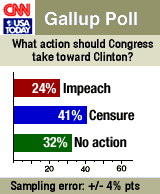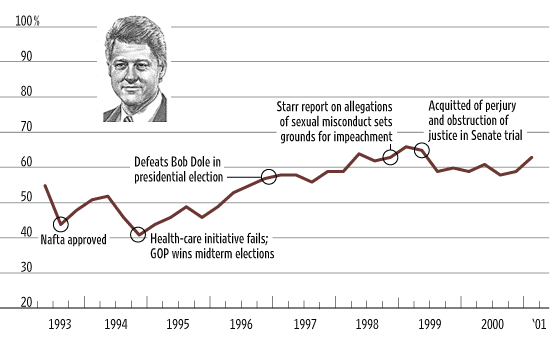Has Nancy Pelosi made any public statements about why she is not supporting a push for impeachment, or what line Trump would have to cross, before she would support it?
On September 20, 2019, House Speaker Pelosi gave an interview to NPR, Pelosi Says Congress Should Pass New Laws So Sitting Presidents Can Be Indicted.
But despite the growing chants among Democrats for an impeachment inquiry in the House, Pelosi has remained reluctant about recourse. She fears it could alienate swing voters ahead of next year's elections and imperil moderate Democrats who were critical to her party's taking back the House last November.
Pelosi did not shift her position on impeachment and said Congress would continue to follow "the facts and the law."
From an earlier, linked, article, Who In The House Is Calling For Impeachment? updated September 17, 2019:
House Speaker Nancy Pelosi, D-Calif., now stands apart from most of her caucus in opposing such a move, at least for now. She recently cited ongoing litigation as a reason she is not ready to advance an impeachment process.
"My position has always been: Whatever decision we made [regarding impeachment] would have to be done with our strongest possible hand, and we still have some outstanding matters in the courts," Pelosi said during a news conference in July. "We have subpoenas in the courts. ... When we get that information we can make that judgment. ... This isn't endless, understand that. But we have live cases in the courts."
Pelosi, who has the most influential voice in the decision whether to move forward, has repeatedly stated that she is focused on public sentiment on the issue. She also stresses the need to focus on current congressional committee investigations into Trump before considering impeachment articles.
There is no line President Trump would have to cross; rather, it depends on facts and public sentiment.
From What Nancy Pelosi Learned From the Clinton Impeachment, June 19, 2019:
Drew Hammill, Pelosi’s deputy chief of staff, told me she was too busy to talk about her own takeaways from the Clinton impeachment. But the House speaker has hardly kept her broader views a secret, making it clear that she prefers to have the relevant House committees continue their investigations into Trump’s potential misdeeds, and pressing the courts for access to documents and witnesses as needed in the face of the White House’s stonewalling. She hasn’t totally ruled out impeachment, but unlike some of her colleagues, she has been wary to commit. “Well, it’s not off the table,” Pelosi told CNN’s Manu Raju on Wednesday. “I don’t think you should impeach for political reasons, and I don’t think you should not impeach for political reasons. It’s not about politics. It’s not about Democrats and Republicans. It’s not about partisanship. It’s about patriotism to our country.”
Quotes reported after 5 PM, September 24, 2019
Pelosi launches formal Trump impeachment inquiry -- live updates, UPDATED ON: SEPTEMBER 24, 2019 / 6:40 PM / CBS NEWS:
5:43 p.m.:
"I'm directing our six committees to proceed with their investigations under that umbrella of impeachment inquiry," Pelosi said in her announcement.
5:57 p.m.:
Pelosi on Tuesday outlined the rationale behind her decision to launch a formal impeachment inquiry, a shift from her earlier reluctance to do so.
"The president must be held accountable," she said. "No one is above the law."
6:13 p.m.:
Later in the Capitol, Pelosi told reporters the Ukraine episode marked a "sea change" in how she approached the question of impeachment, and said it was a "sad day" for the country.
"The president of the United States has admitted that he spoke to the president of another country -- that would be the Ukraine -- about something that would assist him in his election," she said. "So, that has changed everything."
Pelosi said the inspector general's determination that the whistleblower complaint constitutes an "urgent concern" meant she "accelerated the pace of how we go forward" with the inquiry.
6:40 p.m.
Speaker Nancy Pelosi announced the House is launching a formal impeachment inquiry into President Trump, setting up a dramatic constitutional clash just over a year before the presidential election.
"Today I'm announcing the House of Representatives is moving forward with an official impeachment inquiry," Pelosi said in a scathing statement at the Capitol late Tuesday afternoon.
The speaker has long resisted calls from many progressive lawmakers to initiate impeachment proceedings against the president, but Democrats appear to have reached a breaking point over the administration's refusal to hand over a whistleblower complaint related to Mr. Trump's interaction with a foreign leader.

